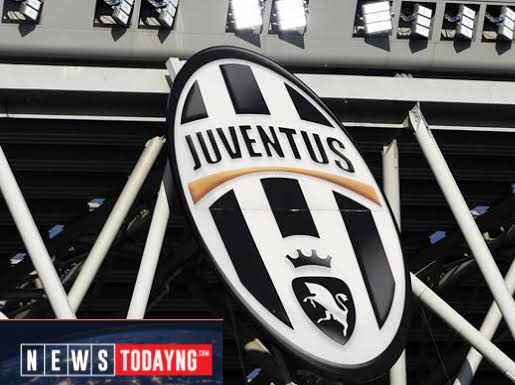Stephen Dunmoye
17 years after Calciopoli, Juventus find themselves at the centre of a scandal that has the potential to devastate the club, and rock Italian football to its very core.
This isn’t about influencing match officials, though but about ‘plusvalenza’, or capital gains which is basically the profit made on a transfer and quite a bit more.
The club were hit with an initial 15-point deduction by the the Italian Football Federation (FIGC) in January for “financial irregularities” and “false accounting” in relation to past transfer dealings.
While those points were restored on appeal, it was announced on Monday that the Bianconeri have had 10 points taken away, meaning Massimiliano Allegri’s side suddenly dropped to seventh in Serie A.
They now face an uphill task to finish in the top four as they linger behind Roma, Atalanta and AC Milan in the final week of the season, but a spot in Europe is still a possibility.
Failure to qualify for the Champions League would have serious sporting and economic consequences for Juve, who have been beset by financial issues in recent years.
However, there is still a long way to run in this latest saga, as NEWSTODAYNG outline below the capital gains of Juventus.
The key to understanding this whole affair is plusvalenza, or capital gains, which is basically the profit made on a transfer.
Meanwhile, for example, when Juventus sign a player for €100 million on a five-year contract. They would amortise the cost of the player’s registration rights over the duration of his contract, most likely spreading the payments out equally over five years. In short, the player’s amortised value would be €20m per year (€100m divided by five).
So, if Juve then sold that player after three years for €60m, they would make a capital gain of €20m on his registration rights (€60m minus the remaining €40m in amortised value).
In the summer of 2020, Arthur Melo moved from Barcelona to Juventus, while Miralem Pjanic went in the opposite direction.
Officially, these two deals were not connected. They were not announced as part of the same transfer.
Barcelona stated that Juve had agreed to pay an initial €72m (£63m/$78m) for Arthur, while Pjanic had been acquired for €60m (£53m/$65m).
Both clubs were, thus, in a position to post a capital gain on their outgoing player, while Juve only had to hand over €12m (£10.5m/$13m) in cash.
It was an agreement that suited both parties, but especially cash-strapped Barca as they edged closer to posting a profit before the end of the financial year.
This exchange was more about finances than football, and it was openly written about at the time.
Neither player appeared worth his respective fee, particularly in the Covid-19 affected economic climate of the time, but that was considered unimportant.
There was no threat of investigation, let alone punishment.
Meanwhile, the ‘capital gains’ case was effectively closed last year, Juve remained under investigation by CONSOB for alleged false accounting and market manipulation.
The Turin Public Prosecutor was also investigating salary payments that were supposedly deferred during the Covid-19 pandemic.
In May and June of 2020, 23 players signed agreements that would see their respective salaries reduced in a bid to cut costs during a testing period financially for clubs around the world – with games played out in empty stadiums as supporters were prevented from attending.
According to the Gazzetta dello Sport, Juventus stars were supposed to give up four months’ worth of wages, but they allegedly only gave up one.
The accusation, therefore, is that the players were paid “in the black” to allow both the players and the club to avoid taxes, while statements were allegedly falsified in order to make out that the books had been balanced.
The Turin Public Prosecutor announced the completion of the ‘Prisma’ in October and then, on November 28, the entire board of directors resigned ahead of an extraordinary general assembly.
It’s important to stress that there was no admission of guilt. The club merely stated that it was “considered to be in the best social interest to recommend that Juventus equip itself with a new board of directors to address these issues”.
In a statement sent to all members of staff, outgoing president Agnelli wrote:
“When the team is not united, then that opens the way for opponents to hurt you and that can be fatal. In that moment, you must have the sharpness of mind to contain the damage: we are facing a delicate moment as a club and that unity is lost.
“Better to leave all together giving the opportunity for a new team to overturn that game.”

